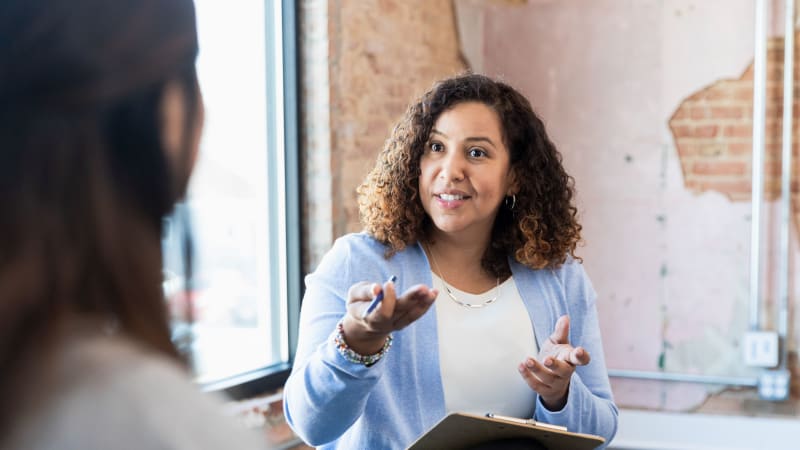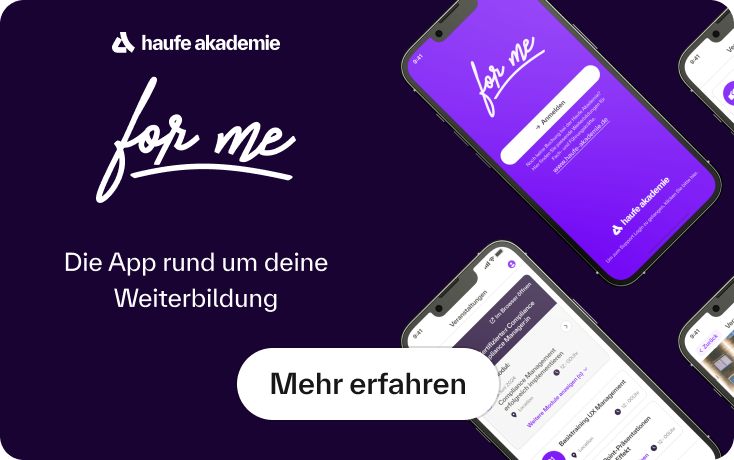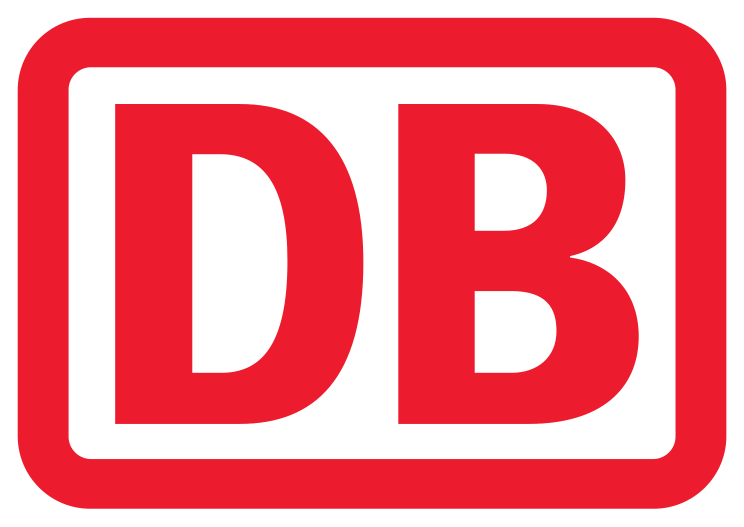Understanding and resolving conflicts better with embodied communication
Why talking alone (often) doesn't help - embodied communication as a way to a stress-free solution

Contents
Neurobiological findings
- Perception, memory and attention on the slide.
- What are needs and motives?
- How do negative emotions arise and how should they be classified?
- 2 Systems control our actions. The concept of somatic markers.
The embodied communication model for conflict resolution
- Body, cognition and environment in permanent interaction.
- The role of the body in communication.
- Divide conflicts according to severity.
- Examine the components of a conflict.
- First aid kit for different problem situations.
Practical application in conflict situations
- Perceive professionally, evaluate and react.
- The concept of somatic markers.
- "Don't judge too early" - avoid misconceptions.
- Increasing attention: what I otherwise miss out on.
- Consciously use self-perception and perception of others.
- Methods and tools to control your own impulses.
- Solution-focused conflict resolution.
Learning environment
Your benefit
The attendees ...
- develop their conflict competence in the long term.
- learn to use their body's signals to resolve conflicts.
- improve their perception of themselves and others.
- have appropriate reaction patterns.
- can deal with a conflict more confidently and calmly.
- learn simple and easy-to-implement exercises that they can use immediately in practice.
- expand their toolbox for tense emotional situations.
Methods
Theory input, embodied communication techniques in practice, self-awareness and self-reflection, individual feedback for each participant, discussion and exchange of experiences.
Recommended for
Managers and employees who want to resolve conflicts professionally and pragmatically.
Further recommendations for "Understanding and resolving conflicts better with embodied communication"

Learning and shaping a sustainable future
Resolving conflicts with less stress and recognizing needs and motives are future skills that you will learn in this training , among other things. According to our partner, the Inner Development Goals Initiative (IDGs), you are also contributing to a sustainable future. The IDGs have scientifically and globally identified the future skills needed to achieve the United Nations' Sustainable Development Goals (SDGs). What exactly does that mean? Find out more.
Start dates and details
Wednesday, 11.03.2026
09:00 am - 6:00 pm
Thursday, 12.03.2026
09:00 am - 5:00 pm
- one joint lunch per full seminar day,
- Catering during breaks and
- extensive working documents.
- one joint lunch per full seminar day,
- Catering during breaks and
- extensive working documents.
- one joint lunch per full seminar day,
- Catering during breaks and
- extensive working documents.
 4.5
4.5







